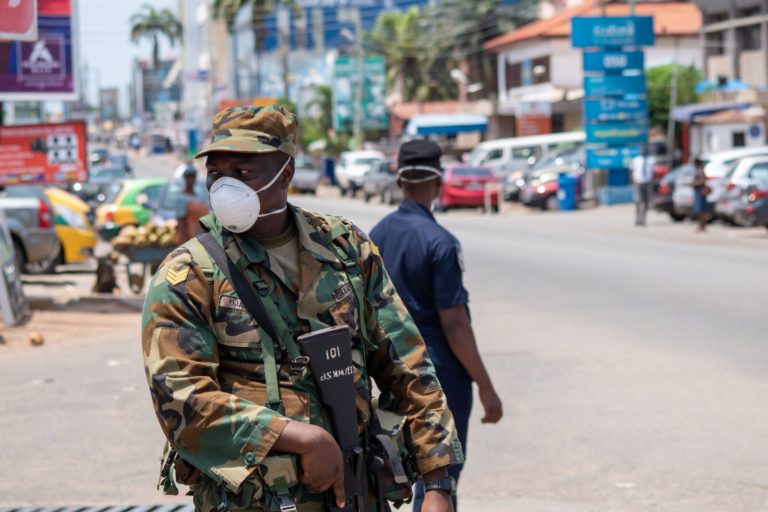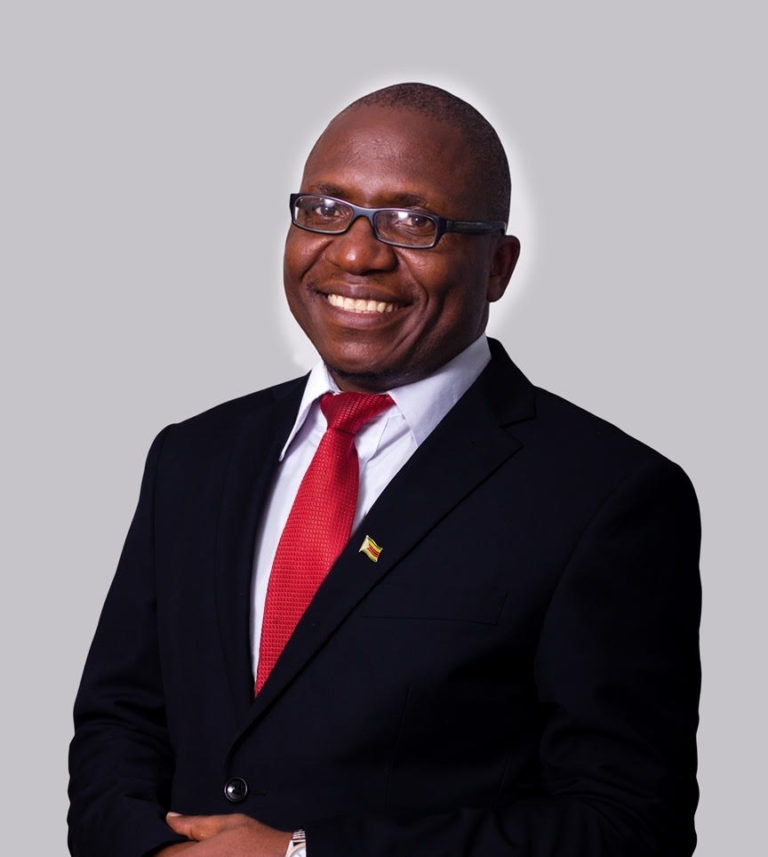Cletus Awuni was on his normal rounds on the afternoon of July 1 when the alarming news came his way.
Some soldiers were on the rampage in Wa, the capital of Ghana’s Upper West Region.
They were beating up some residents of the town and putting others in positions of duress after a phone belonging to one of the soldiers had been stolen.
Cletus, the Public Relations of Officer of the region’s Coordinating Council set out to investigate the brutalities and perhaps put a stop to it.
But in a blink, he too became a victim.
“In the course trying to find out why they were brutalizing people, I got myself also assaulted,” he recalled to Ubuntu Times.
When he got to the scene, Cletus had tried to capture the incident on video.
He was in a car with his phone up ready to film the human rights abuses when some of the soldiers turned their attention to him.
“About eight of them pounced on our vehicle and opened the door and tried to pull me out and they beat me up,” he said.
The conduct of the soldiers was a surprise to Cletus.
He said this was the first time he had heard of such an occurrence in his part of the country, which is known to be relatively quiet.
“The relationship between the citizens of the region and military has been very peaceful. In fact, no one has even noticed the presence of the military in the region.”
However, when the rest of Ghana heard the news and saw images of the actions of the soldiers, this was the latest instance of a worrying trend.
The country was already on edge after a more lethal instance of human rights abuses by the military.
The Wa incident followed soldiers opening fire on some protestors two days earlier in Ejura, a town in Ghana’s Ashanti Region.
The protestors were angry over the death of an activist in the area, who is believed to have been murdered because of his criticism of the Akufo-Addo administration.
Six people sustained gunshot wounds, two of whom died having been shot in the back. One of the wounded, a 16-year-old boy, lost a leg.
The subsequent outrage prompted the formation of a commission of inquiry to probe the circumstances that led to the military deployment to a purely civilian matter.
Escalation Of A Worrying Trend
Soldiers in Ghana can be seen responding to distress calls in schools, manning checkpoints, and fighting crime like police officers, among others.
A security consultant, Col. Festus Aboagye, has been one of the voices in the desert long decrying the growing footprint of Ghana’s military in civilian affairs.
“Why bring ourselves to a point where every issue should have the military in front line deployment? It is not appropriate,” he said to Ubuntu Times earlier in the year, when soldiers were again in the news for the wrong reason.
In the case of Ejura, testimony from the commission of inquiry has revealed that there were multiple breaches of protocols and drills meaning the military intervention was unlawful.
This is in addition to clear evidence the soldiers “were not equipped or did not intend to engage in any crowd control,” observed Col. Aboagye.
These incidents remain a major threat to Ghana’s democracy as we know it, he reiterated.
“The democracy that we have is very fragile; just a veneer. It is just on the surface.”
This damaging footprint of the military in civilian affairs has gotten significantly larger in the last 12 months.

Soldiers deployed to opposition strongholds ahead of the 2020 election were accused of being tools of voter suppression.
They were also used to police the election itself and an attempt to disperse an agitating crowd with live bullets at a polling station led to the death of two persons.
To cap off a turbulent election cycle, in one of the most shocking scenes since Ghana returned to civilian rule, Ghanaians were left with open mouths at the sight of soldiers streaming into Ghana’s Parliament to confront brawling legislators.
Cry For Accountability
When soldiers are engaged in human rights abuses, there is generally no accountability to the public.
For instance, no attempt has been made to find and sanction the security personnel who opened fire on the crowd at the polling center leading to the two deaths.
“Up till date, not a single person has been held to account or is standing prosecution for their roles in those murders,” Mensah Thompson, the Executive Secretary of Alliance for Social Equity and Public Accountability, stressed to Ubuntu Times.
For him, it is a reminder that there are never any significant outcomes in terms of accountability of security agencies when they abuse power.
Even with the inquiry into the recent actions of the military in Ejura, Thompson feels there is no cause for excitement.
“What we want to see is a more robust attitude towards military brutality,” he said. “The government has been lax and this emboldening military men to engage in more brutalities.”
The lack of robustness has been reflected in the posturing of the committee probing the actions of the military in Ejura.
The committee at times appears unfocused and for people scrutinizing its work, like Col. Aboagye, the committee does not seem well prepared.
“I doubt whether the committee will establish substantive findings,” he added.
The committee has at times appeared more interested in the accounts from victim’s families and some media personnel who had limited knowledge of the events on the ground.
But the military personnel seem to have been treated with kid gloves, having questionable statements go unchallenged.
One of the officers in charge claimed the dead protesters could have been killed by friendly fire from fellow protesters but have presented no evidence to that effect.
This is in contrast to damning footage from the media showing soldiers aiming and firing on fleeing protesters.
Whilst commanding officers were invited to testify before the committee, soldiers who discharged their weapons were not even called to answer for their actions, to Col. Aboagye’s dismay.
“The people who were on the ground, the soldiers, all of them should have been called [especially] the ones who fired,” remarked the consultant.
Growing Partisan Shadow Over The Military
As alarming as the conduct of military personnel has been, fears are that it is only a symptom of the bigger problem; the flooding of security agencies with political party footsoldiers and militia.
In 2019, a law was passed to criminalize the erstwhile practice of political parties forming units sometimes described as militia or vigilante groups.
The governing New Patriotic Party and the opposition National Democratic Congress were the main culprits of what was viewed as a major threat to Ghana’s peace.
At their worst, vigilante groups were seen storming a courtroom to free prisoners or beating up police at the seat of the Presidency.
But since the law was passed, Thompson fears the security services have replaced the vigilante groups.
“Unfortunately, the government did not disband its militia but rather found a way to absorb them into the security agencies,” he noted.
The governing party has a monopoly in this regard since it controls recruitment into security agencies.
This is seen as one of the reasons accountability has been hard to come by, and why the families of victims in Ejura may not see justice.
Beyond Ejura, the list of victims of human rights abuses at the hands of security agencies is likely to grow longer and Thompson warns that partisan strings controlling Ghana’s security agencies must be cut.
“If we want to maintain the peace and order in this country, it is important that we depoliticize our security agencies.”

















